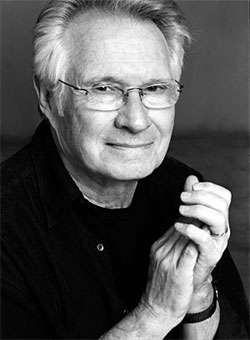

  |
|
|
||||||||||||||||||||||
|
FMS FEATURE... March 21, 2007 Grusin concert at LACMA Copland works also performed at "art & music" event by Jon Burlingame  It was smart programming – music that speaks of the American West, a perfect complement to the art and photography of Frederic Remington, Jackson Pollock, Ansel Adams and others depicting the western half of the United States during the late 19th and early 20th centuries. The Armadillo String Quartet, one of L.A.'s top chamber ensembles, delighted the crowd at LACMA's Bing Theater with four Copland pieces that had been reduced in size from their original orchestral versions. Opening the program was "Hoedown" from the 1942 ballet Rodeo, performed by violinist Barry Socher and pianist Christopher Weldon. "Waltz" and "Celebration" from the 1938 Billy the Kid ballet were beautifully executed by Weldon and cellist Armen Ksajikian. The less familiar 1933 work Sextet was still recognizably Copland in terms of its harmonies and Americana ambiance. Joining the quartet were Weldon and clarinetist Gary Bovyer. The real treat of the first half was the first five minutes of The Red Pony, the 1949 Copland-scored Republic film of the John Steinbeck novel. Orchestrator Brad Dechter created a new arrangement for the sextet that was played live to picture and offered an alternate version of the familiar Red Pony music that was both fresh and a fun audio-visual experience. Grusin then introduced another of the evening's highlights, three parts of the suite from his Oscar-winning score for the 1988 film The Milagro Beanfield War. "Landscape and geography have a huge effect on me," he said, noting that he visited the northern New Mexico locations for the film. He spoke of the impact that the region's Native American- and Spanish-influenced culture had had on him and his music. He played "Lupita," a theme for the pig in the film, "Pistolero," for one of the main characters, and "Milagro," the lyrical main theme – all colorful, memorable pieces that, while originally written for orchestra, proved equally compelling on piano alone. Grusin's encore proved an unexpected and welcome surprise: Six minutes from his 1981 score for On Golden Pond: the tender and touching main theme and his upbeat "New Hampshire Hornpipe." (In introducing the piece, he noted that Copland was an Easterner writing about the West, and since Grusin was a Westerner writing music set in New England for this film, he thought it "an even trade.") Monday's concert was the fifth of the season, Director of Music Programs Mitch Glickman said. Scheduled for April 24: guitar duo Sergio and Odair Assad, playing works by Piazzolla, Gismonti and Rodrigo, presented in connection with the museum's Latin American art collection. ©2007 Jon Burlingame |
Search
Past Features
Feature Archives
|